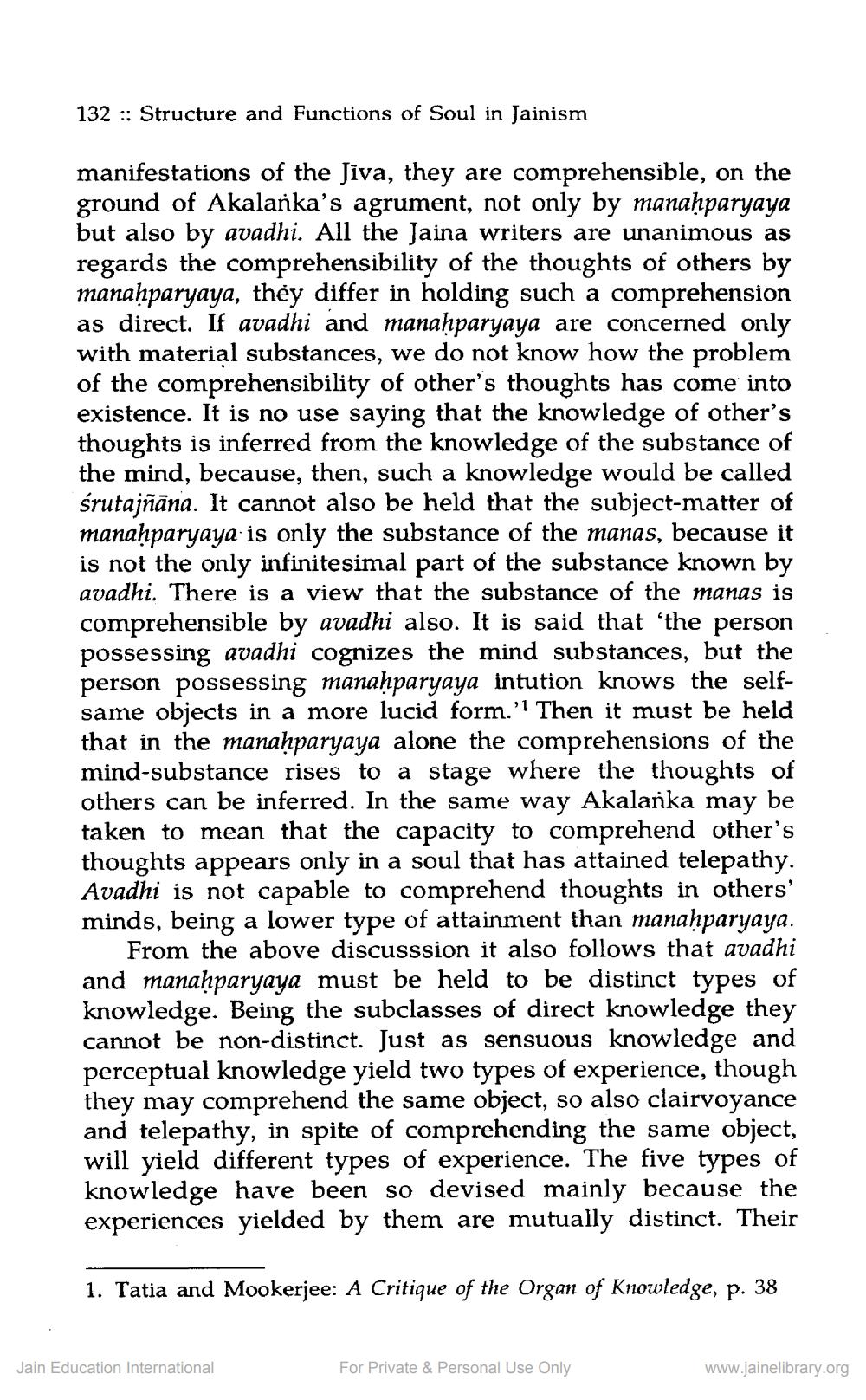________________
132 :: Structure and Functions of Soul in Jainism
manifestations of the Jiva, they are comprehensible, on the ground of Akalanka's agrument, not only by manaḥparyaya but also by avadhi. All the Jaina writers are unanimous as regards the comprehensibility of the thoughts of others by manaḥparyaya, they differ in holding such a comprehension as direct. If avadhi and manaḥparyaya are concerned only with material substances, we do not know how the problem of the comprehensibility of other's thoughts has come into existence. It is no use saying that the knowledge of other's thoughts is inferred from the knowledge of the substance of the mind, because, then, such a knowledge would be called śrutajñāna. It cannot also be held that the subject-matter of manahparyaya is only the substance of the manas, because it is not the only infinitesimal part of the substance known by avadhi. There is a view that the substance of the manas is comprehensible by avadhi also. It is said that the person possessing avadhi cognizes the mind substances, but the person possessing manahparyaya intution knows the selfsame objects in a more lucid form.' Then it must be held that in the manaḥparyaya alone the comprehensions of the mind-substance rises to a stage where the thoughts of others can be inferred. In the same way Akalanka may be taken to mean that the capacity to comprehend other's thoughts appears only in a soul that has attained telepathy. Avadhi is not capable to comprehend thoughts in others' minds, being a lower type of attainment than manaḥparyaya.
From the above discusssion it also follows that avadhi and manaḥparyaya must be held to be distinct types of knowledge. Being the subclasses of direct knowledge they cannot be non-distinct. Just as sensuous knowledge and perceptual knowledge yield two types of experience, though they may comprehend the same object, so also clairvoyance and telepathy, in spite of comprehending the same object, will yield different types of experience. The five types of knowledge have been so devised mainly because the experiences yielded by them are mutually distinct. Their
1. Tatia and Mookerjee: A Critique of the Organ of Knowledge, p. 38
Jain Education International
For Private & Personal Use Only
www.jainelibrary.org




